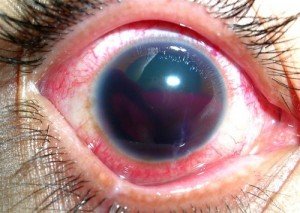Conjunctivitis or pink eye is an infection or the inflammation of the transparent membrane called conjunctiva. When the small blood vessels in the conjunctiva become swollen, they are more visible. This produces the whites on the eyes to look reddish.
Pink eye is usually affected by a bacterial infection. It may affect one or both eyes. It can be irritating, but rarely affects vision. It is contagious that treatment can help limit its spread.
https://www.youtube.com/watch?v=0pQRemulIqc
What Causes Conjunctivitis?
Conjunctivitis can be caused by the following:
- Viruses
- Bacteria such as gonorrhoea
- Irritants like shampoos, dirt, smoke and chlorine
- Allergies
Pink eye that triggered by some bacteria can easily spread from one person to another, but not a serious health risk if diagnosed immediately.
Symptoms of Pink Eye
Infected eyes look uncomfortable and terrible; more symptoms normally clear up within one to two weeks. If inflammation persists, antibiotic can be prescribed by the doctor. Some may experience burning sensation although vision is not affected.
Symptoms may vary based on the origin of the inflammation, it may include:
- Redness in the sclera or white of the eye
- Increased amount of tears
- Heavy yellow discharge
- Blurred vision
- White or green discharge from the eye
- Itchy eyes
- Increased sensitivity to light
- Burning eyes

Treating Conjunctivitis
If treatment is needed, the treatment will depend on the cause of the inflammation of the eye. In serious cases, antibiotic eye drops is used to reduce the infection.
Allergic conjunctivitis can be treated with anti-allergy medications like antihistamines. Avoid the substance that triggers the allergy.
It is recommended that avoid wearing contact lenses until the symptoms are cleared. Clean with cotton wool and water some sticky coating on the eyelids or eyelashes.
How to Avoid Conjunctivitis?
- Wash hands regularly and do not share pillows or towels to prevent the spread of the inflammation.
- Get plenty of sleep and eat healthy diet.
- Avoid getting irritated by dirt and dust in the eyes.
- Applying medication if you have conjunctivitis is recommended to avoid spreading it.
- Use a clean tissue to remove discharge from eyes.
- Use proper protection of the eyes and screens to prevent damaging of the eyes during welding.
- If medication is given, finish the course of antibiotics as directed to determine that the infection is cleared up and will not recur.
- Avoid wearing of make up during infection. Never share eye make-up with others to avoid the spreading of the infection.